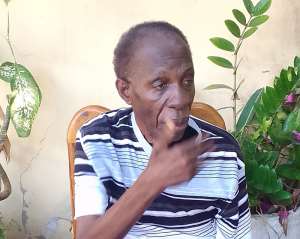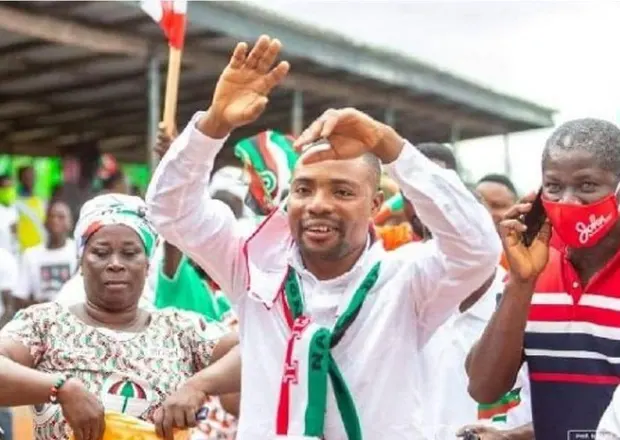
Ahead of Ghana's December 2024 general elections, retired Major Kwabena Adutu, a statesman and former chairman of the Citizens' Vetting Committee (CVC) under the PNDC era, has advised Ghanaians, especially current leaders, not to let corruption derail the country's hard-won democratic achievements.
The PNDC, led by Flight Lt. Jerry John Rawlings, was the Ghanaian military regime that took power following the overthrow of the People's National Party-led government on December 31, 1981. Rawlings remained in power until January 7, 2000. The Citizens' Vetting Committee was a strategic organ of the PNDC charged with investigating citizens whose lifestyles were perceived to be above their known income and punishing tax evasion.
In a recent interview in Accra, Adutu expressed concern about the increasing tendency toward corruption across virtually all facets of society, warning that it does not bode well for the country's future.
"Ghana urgently needs a catch-them-young strategy to intentionally change citizens' mindsets, starting with children in basic schools," Adutu said. "Corruption is not limited to politicians alone; it is pervasive in the courts, hospitals, and academia. Unless we make efforts to eliminate or reduce corruption, nothing will work."
Ghanaians are set to vote in what is projected to be the country's most unique and tense elections since the return to democratic governance. The main contenders, John Mahama of the National Democratic Congress (NDC) and Vice President Mahamudu Bawumia of the New Patriotic Party (NPP), represent different religions—Christianity and Islam, respectively. Both hail from northern Ghana, a region vulnerable to terrorist acts and unresolved tribal conflicts.
Ghana scored 43 out of a possible 100 in the 2023 Corruption Perceptions Index (CPI) by Transparency International, ranking 70th out of 180 countries. Transparency International attributed Ghana’s stagnation to a deteriorating justice system, which reduces the accountability of public officials and allows corruption to thrive.
A recent high-profile petition seeking to impeach Kissi Agyebeng, the country’s special prosecutor against corruption, has sparked a political storm, with critics accusing President Nana Akufo-Addo of orchestrating a scheme to remove Agyebeng. Appointed three years ago, Agyebeng’s tenure has been marked by tensions with the government and clashes with the attorney general’s office over prosecuting former cabinet minister Cecilia Dapaah for alleged money laundering.
Adutu also expressed concern over the prevalence of vote-buying in party primaries, which he sees as a fundamental part of the corruption problem. "You go and buy votes, or someone gives money to vote for them, and you accept? You have already started corruption. How do you tackle that in an election year when both NPP and NDC do it?" he questioned.
He warned that if the current trend continues, Ghana might eventually struggle to find capable leaders. "A time will come when we won’t even get people with good minds and intellectual capacity to run for office. Then it will be between cocaine dealers and illegal miners."
Despite these concerns, Adutu remains hopeful, urging Ghanaians to change their mindset and elect a democratic leader committed to addressing corruption. "We must start early with the school children—a catch-them-young strategy. Let us get a leader who will correct things," he urged.




 You're an illiterate, illogical; a sane person won't praise Bawumia's 'destructi...
You're an illiterate, illogical; a sane person won't praise Bawumia's 'destructi...
 NHIS was a brainchild of NDC, piloted during PNDC era; we've failed to market th...
NHIS was a brainchild of NDC, piloted during PNDC era; we've failed to market th...
 'Mahama has no respect for Ghanaians; I'm disappointed in him' — Development Eco...
'Mahama has no respect for Ghanaians; I'm disappointed in him' — Development Eco...
 King Oyanka petitions IGP: Greater Accra Regional Police accused of undermining ...
King Oyanka petitions IGP: Greater Accra Regional Police accused of undermining ...
 'It's backed by data' — Local gov't Minister clarifies his 'Ghana's poverty leve...
'It's backed by data' — Local gov't Minister clarifies his 'Ghana's poverty leve...
 TUC condemns manager for assaulting female employee at Nkawkaw over GHC90
TUC condemns manager for assaulting female employee at Nkawkaw over GHC90
 SSNIT Hotels Sale: We will continue to engage stakeholders — Director-General
SSNIT Hotels Sale: We will continue to engage stakeholders — Director-General
 Claims gov't secured debt restructuring agreement with IPPs misleading, deceptiv...
Claims gov't secured debt restructuring agreement with IPPs misleading, deceptiv...
 Koforidua SECTECH Staff dies in car crash at Somanya
Koforidua SECTECH Staff dies in car crash at Somanya
 NDC National Executive fume over suspension of ‘sexy’ Assin Central PC
NDC National Executive fume over suspension of ‘sexy’ Assin Central PC
